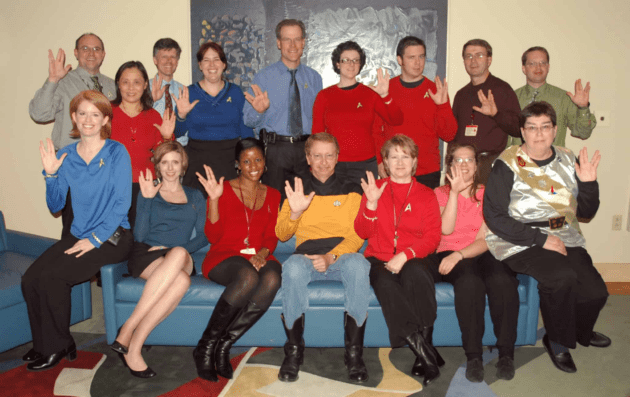
How long have you worked in the University of Arkansas System?
After college, I worked in the Animal Sciences Department at UA Fayetteville for a couple of years doing poultry research and also diagnostic work with industry clients such as Tyson Foods. I joined UAMS in 1986 and worked briefly with Dr. Phillip Rayford in the Physiology Department prior to my 31-year tenure with Dr. Michael Owens in the Department of Pharmacology.
What is your favorite part of your job?
The most enjoyable part of my job is watching students develop into independent researchers. It is exciting to see how students from different backgrounds and varied experiences tackle research projects. Our research program utilizes team-based learning so the students are cross-trained to perform most of the techniques and methods we use in our medications development program. I value the team-based approach because I believe it gives students a more well-rounded research experience and promotes ownership in the research program as a whole instead of just in their individual projects.
I have always benefited from seeing how others use their knowledge and experiences to solve complex problems. Although the students may not always appreciate my detail-oriented approach to conducting research, my hope is that one day some technique or organizational skill that I taught them might help to advance their careers or impact their contribution to Science in some way.
Are there any challenges?
Performing hypothesis driven research is always a challenge. Sometimes the research results don’t go in the direction that you thought they would. Designing the right experiments and analytical methods to test a hypothesis can be difficult. Not being afraid to step out of your comfort zone and challenge yourself to think in a different way keeps the research interesting.
Working on “soft money” presents its own challenges therefore we tackle grant submissions as a team. Whether it’s preparing graphs, working on the budget, designing experiments or editing, everyone in the lab contributes in some way. It’s a true team effort therefore everyone has a vested interest and feels a real sense of accomplishment when a grant is awarded. I count myself very lucky to belong to a lab that has been continuously NIH funded since the 1980s!
How does your group handle problematic issues?
As far as problematic personnel issues, we rarely have any. During the interviewing process, we stress that we are more like a family than a group of co-workers. We believe that good communication between members of the group is essential. Having respect for each other and being willing to discuss things before they escalate into a problem are key to keeping the working environment pleasant.
We have frequent group meetings to keep us up on everyone’s research projects but also eat lunch as a group on most days so we really get to know each other on a personal level. Birthdays are a big deal in the lab. We typically celebrate by going out to lunch as a group followed by dessert in our office complex. Milestone birthdays are celebrated in a big way with a theme party. The parties are usually a surprise to the recipient and are tailored to their interests. Everyone participates and over the years we’ve been known to come to work dressed in Star Trek, beach or tennis attire to fit a party theme.

What do you do for fun?
I enjoy going to movies, antiquing and playing games with my adult children and friends and love babysitting for my co-workers kids since I don’t have any grandchildren of my own yet. I also like spending time with my large extended family. Both of my parents grew up on the outskirts of Little Rock and their families are a close-knit group. Most people find it hard to believe that many of us meet every Monday night for dinner and every other year for a weeklong vacation together. A group of about 20 from age 6-80 are headed to Galveston in May!
If I could visit any place in the world, it would have to be the Amazon Rainforest. Understanding that it could hold the contents of so many potential medicinal products is intriguing to me.
Any last thoughts?
The most rewarding part of my research career has been to see the anti-drug antibodies that we initially developed as analytical tools for understanding basic science questions are now being tested in human clinical trials as therapeutic agents for fighting drug abuse. Knowing that something that I helped develop could potentially help individuals and their families deal with drug addiction is beyond amazing!
